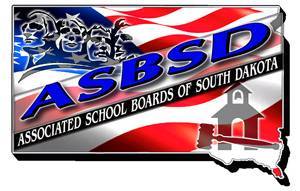Senate Education committee members covered a diverse agenda at Thursday’s meeting.
Committee members affirmed Governor Dennis Daugaard’s appointment of Dr. Melody Schopp as the state’s Secretary of Education on a 5-0 vote. Senators voted 31-1 in favor of appointment.
Sec. Schopp has served as the leader of the Department of Education for four years. Representatives from ASBSD, SASD, SDEA, Board of Regents and the technical institutes all voiced support of the governor’s appointment.
“There’s not a single conversation that I have with (Sec. Schopp) where she doesn’t say, ‘it’s about the kids,’” Sen. Deb Soholt, the Senate Ed. committee chair, said.
House Bill 1100, which clarifies how a vacancy on a school board would be filled, passed the committee and Senate unanimously. HB 1100 has not received a nay vote yet, with just one more to come.
ASBSD supports the bill. Executive Director Wade Pogany said the bill “cleans up an issue” school boards have faced for several years.
Under HB 1100, a vacating school board member would participate in the process of filling a vacated school board seat, when:
- No individual is elected to the vacated seat;
- An elected school board member fails to meet the qualifications necessary to serve on the school board;
- When a school board member resigns prior to the end of the term which they were elected to.
The bill would also clarify instances when only the remaining school board members would fill a vacated school board seat. Those instances include, when a board member:
- Dies;
- Is removed from the board;
- Ceases to be a resident of the school district or representation area where elected;
- Is convicted of any infamous crime or of any offense involving a violation of the member’s official oath;
- Has a judgment obtained against the member for breach of the member’s official bond;
- Is incapacitated and is unable to attend to the duties of the position;
- Assumes the duties of an office incompatible with the duties of a school board member;
On a unanimous vote, committee members and the Senate passed House Bill 1097, which allows certain school districts meeting specific criteria to remain open despite dropping below the 100 student enrollment threshold.
Rep. Fred Deutsch said the bill was introduced in response to the Big Stone City School District’s recent dip below the 100-student threshold. Rep. Deutsch said BSC is a “unique situation” because it is only a K-8 education center – one of two schools in S.D. – and the under-100 threshold applies to K-12 districts.
HB 1097 would add the following criteria to state law:
“For any school district that does not operate a high school and contracts with an adjoining school district in Minnesota to educate its resident high school students, the minimum fall enrollment that the school district must maintain pursuant to this section is not one hundred, but rather is equal to a pro-rated share of one hundred based upon the number of grades offered within the school district.”
Rep. Deutsch said the bill would not change the intent of the under-100 threshold, but apply the enrollment threshold to BSC on a pro-rated basis, which would set the level at approximately 69 students.
ASBSD is monitoring the bill.
In similar unanimous fashion, Senate Ed. members and Senators passed House Bill 1137, which excludes the passing time between classes in the number of hours required in the school term for students in the 6th-12th grades.
Rep. Jacqueline Sly, the bill’s prime sponsor, said hours are counted in a “wide variation from district to district” and the bill would institute uniformity in the calculation of school hours.
ASBSD is monitoring the bill.
Finally, the committee and Senate unanimously passed Senate Concurrent Resolution 6, which directs the Department of Education to ensure South Dakota students are well-versed in civics and government.
“We do believe that this joint resolution is a strong statement,” Sec. Schopp testified.
SCR 6, which has no legal power, comes in lieu of Senate Bill 164, which would have required students to take a civics test to demonstrate knowledge of United States history and government and require school districts to administer and fund the assessment. SB 164 was tabled at the behest of the bill’s sponsor earlier in session.
Rob Timm, CEO of the Chiesman Center for Democracy, said “enhancing” civics education through the resolution process and partnership with DOE is a “much better” option than the proposed assessment.
“We really found a way to ensure that (civics) is part of coursework,” Sen. Soholt said of SCR 6.
ASBSD is monitoring the resolution, which, along with the passed bills and appointment of Sec. Schopp, now move to the Senate floor for debate and vote.
